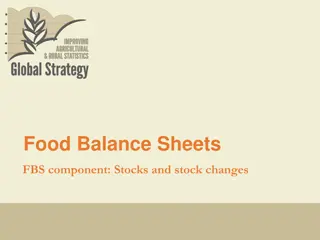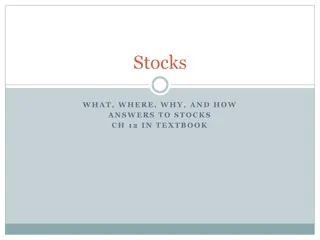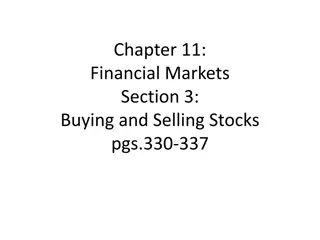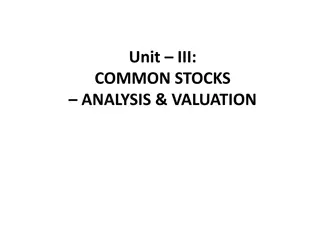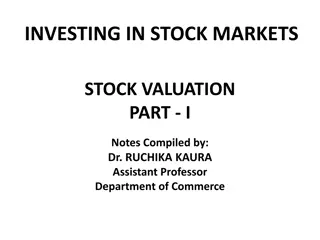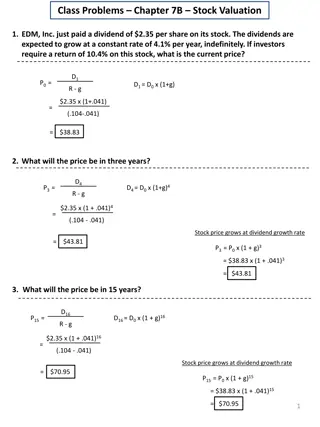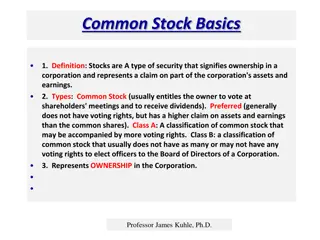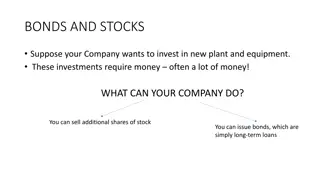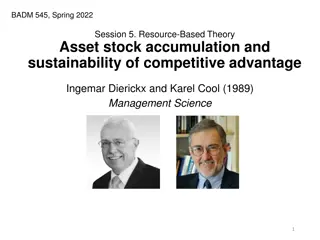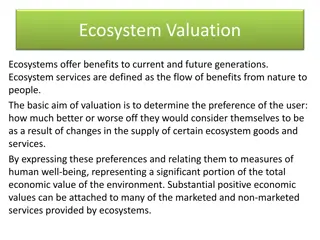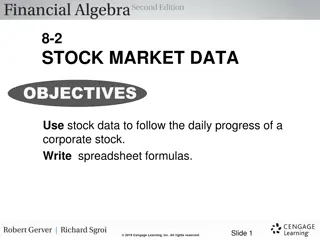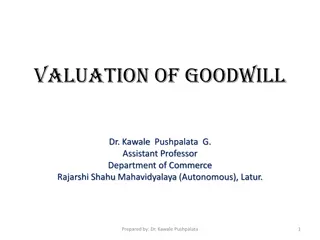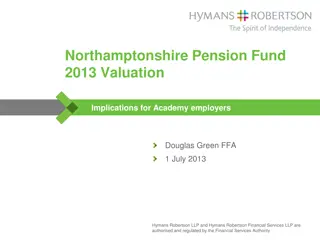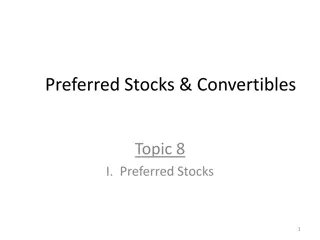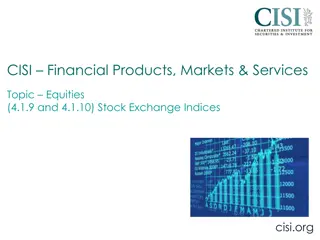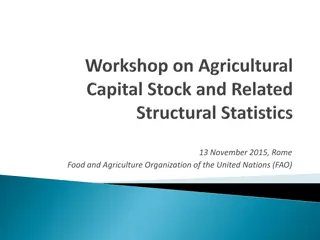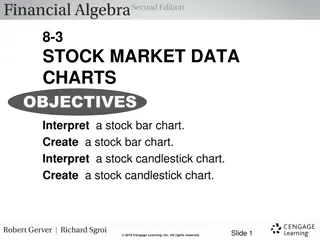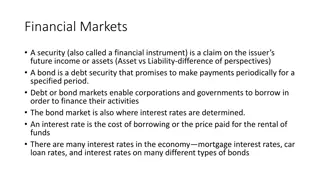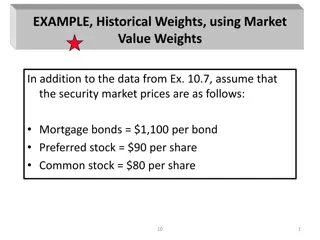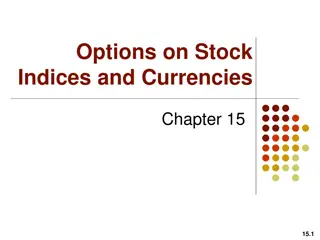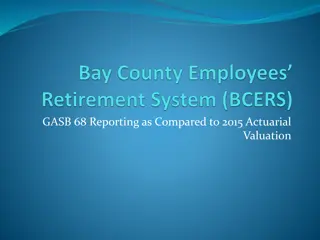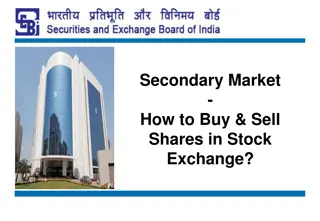Understanding Growth Companies and Growth Stocks in Stock Valuation
Exploring the differences between good companies and good investments, this analysis delves into intrinsic vs. market value of stocks. It explains growth companies and growth stocks, highlighting their characteristics and why undervaluation plays a critical role in investment decisions.
Download Presentation

Please find below an Image/Link to download the presentation.
The content on the website is provided AS IS for your information and personal use only. It may not be sold, licensed, or shared on other websites without obtaining consent from the author. Download presentation by click this link. If you encounter any issues during the download, it is possible that the publisher has removed the file from their server.
E N D
Presentation Transcript
Company analysis and stock valuation ch14
Company Analysis vs. Stock Valuation Good companies are not necessarily good investments. Why? Compare the intrinsic value of a stock to its market value Stock of a great company may be overpriced (market value is higher than intrinsic value) Which means its not a good stock to invest in although the company s performance is extremely well.
Growth companies and growth stocks Growth company is a: company that has a rate of return that is higher than the required rate of return (WACC). Has the potential for future earning growth. The firm s sales and earnings grow faster than those of a similar risk firms and the overall economy. Younger companies that has above average investment opportunities. These companies retain a large portion of its earning to fund these investment projects. Low dividend payout ratio. Or no dividend sometimes.
Growth companies and growth stocks Growth stock is : Stock with higher expected rate of return than other stocks in the market with similar risk characteristics Achieves this superior risk-adjusted rate of return because the market has undervalued it compared to other stocks.
Growth companies and growth stocks Although stock market adjusts stock prices relatively quickly and accurately to reflect new information, available information are not always perfect or complete. Therefore, incomplete information may cause a stock to be undervalued or overvalued at a point in time. If the stock is undervalued, its price should eventually reflect the true fundamental value when the correct information becomes available. During this period of price adjustment, it will be a growth stock.
Growth companies and growth stocks Growth stock are not necessarily limited to growth companies. It can be the stock of any type of company as long as this stock is undervalued by the market.
Growth companies and growth stocks Example, if an overeager investor tend to overestimate the expected growth rate of earnings and cash flows for a growth company and inflate the price of a growth company stock. Then investors who paid the inflated stock price will earn a rate of return below the risk adjusted required rate of return.
Defensive companies vs defensive stock Defensive Company: Whose future earnings are likely to resist an economic downturn Normally have low business risk and not excessive financial risk Supply basic consumer necessities such as Public utilities or grocery stores.
Defensive companies vs defensive stock Defensive stock: Rate of return is not expected to decline during an overall market decline or decline less than the overall market. Stock with low or negative systematic risk Or in other words, a stock that has a low positive or negative beta (the expected return of an asset based on its expected market returns is low)
Cyclical companies and cyclical stocks Cyclical companies: Sales and earnings will be heavily influenced by aggregate business activity Outperform other firms during economic expansion Underperform during economic contractions High volatility in sales (high business risk and financial risk) Example steel, auto or heavy machinery industries
Cyclical companies and cyclical stocks Cyclical stock: Experiences changes in rates of return greater than changes in overall market rates of return Stocks with high betas
Speculative companies vs speculative stocks Speculative companies Whose assets involve greater risk but that also has a possibility of greater gain Speculative stock Possesses a high probability of low or negative rates of return
Speculative stocks One that is overpriced, leading to a high probability that during the future period when the market adjusts the stock price to its true value, Will experience either low or possibly negative rates of return Might be the case for an excellent growth stock that is substantially overvalued


